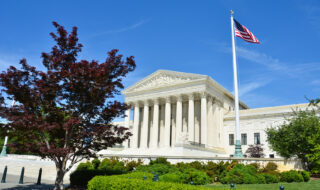What DOL’s New Overtime Rule Means for Your Business
What DOL’s New Overtime Rule Means for Your Business
May 7, 2024
What DOL’s New Overtime Rule Means for Your Business
Last week, the U.S. Department of Labor (DOL) released a new overtime rule that significantly raises the salary threshold for overtime pay eligibility and will automatically increase the threshold over time. The rule complicates a clear legal exemption for executive, administrative, and professional employees.
What Does the Rule Change?
The Fair Labor Standards Act (FLSA) exempts “any employee employed in a bona fide executive, administrative, or professional capacity” from overtime pay requirements. This means that as Congress envisioned it, certain employees would be exempt from overtime pay based on their job duties, regardless of salary. However, over time, DOL has changed the focus of this exemption so that employees who should otherwise be exempt also have to make a certain salary to qualify. With the new rule, that salary level has increased dramatically and will keep going up.
How Much Will the Salary Threshold Increase?
Currently, employees making less than $35,568 per year must be paid overtime. Under the new rule, the overtime threshold will increase in two steps:
- On July 1, 2024, salaried workers making less than $43,888 will become eligible for overtime pay.
- On January 1, 2025, those making less than $58,656 must be paid overtime.
By July 1, 2027, DOL will recalculate the salary threshold, and issue further increases every three years.
What Does This Mean for Me?
Starting July 1, 2024, employees earning salaries below $43,888 must be paid time-and-a-half for working beyond 40 hours in a single workweek, regardless of their job duties. This rule will likely force small business owners to reclassify many exempt employees and possibly pay overtime to employees who have long been ineligible for it, or else issue unrealistic and unsustainable salary pay increases to avoid overtime pay.
What is NFIB Doing to Stop It?
NFIB opposed the rule when DOL submitted it for notice and comment, and voiced our disagreement with the rule when it was issued in its final form. DOL does not have the authority to raise the salary threshold, and in fact, has no authority to issue a salary level test at all. The FLSA is clear: executive, administrative, and professional employees ought to be exempt from overtime pay. We plan to join a legal challenge against the rule and fight for small businesses against this bureaucratic government overreach.
For more information, reach out to the NFIB Small Business Legal Center at info@nfib.org.
NFIB is a member-driven organization advocating on behalf of small and independent businesses nationwide.
Related Articles















